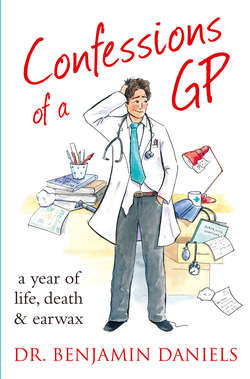Читать книгу Confessions of a GP - Benjamin Daniels - Страница 25
Saving lives
ОглавлениеA few years back I spent a stint working in a hospital in Mozambique. Each morning the American consultant would start the ward round with a prayer and then shout boldly and, with not the slightest hint of irony, ‘Come on team, let’s go save some lives!’ The rest of us would then cringe internally, roll our eyes at each other and then follow him round the morning’s array of sick and dying Africans. There are a surprising number of Western doctors filing around the wards of African hospitals. I’m not always sure of the motives but there we were: an American cardiologist, two British GPs and a French nurse. Between us, we had years of expensive medical training and lots of letters after our names. As we wandered through the wards, we didn’t really save many lives. The majority of our patients were dying of AIDS-related illnesses or malaria. There were no anti-AIDS drugs (antiretrovirals, ARVs) and even our malaria medication supply was low because of a robbery at the hospital pharmacy (an inside job).
Meanwhile, 30 miles outside of town, Rachel, a 22-year-old from Glasgow with no letters after her name, really was saving lives. Rachel had dropped out of her sociology degree and had been working in a call centre before deciding to come and do some voluntary work in Mozambique. She had raised some sponsorship from back home and was touring the rural villages with a troop of local women. All she had at her disposal was a basketful of free condoms and a few hundred subsidised mosquito nets. Accompanied by information and education in the form of songs and posters, her campaign was a raging success. She later e-mailed me to say that malaria deaths had reduced and that she was hoping to have an equally good result with HIV transmission rates.
At the same time, my learned colleagues and I made clever diagnoses on the ward and skilfully inserted chest drains and spinal needles. Occasionally, we did save a life and it was quite exciting when a patient got up and went home after being at death’s door. As we waved them off, we knew that ultimately they would be back. They couldn’t afford to pay for the full course of medication, and it was only a matter of time before they were unwell again and back in our hospital. We were briefly prolonging lives rather than saving them.
Regardless of the country it is practised in, most of hospital medicine is painting over the cracks rather than fixing the wall. Lives are saved by preventing illness rather than curing it. If you are 64 and admitted to hospital in the UK with a heart attack, it will be all blue lights and running around. After emergency heart scans, a dashing young doctor will probably give you a whack of clot-busting medicine into your veins and it could save your life. At age 16, this was just the kind of exciting medicine that I imagined my job would be. I have been that doctor and at times it is genuinely quite glamorous and exhilarating. Sometimes, it does make a real difference and lives are saved. The patient and family will thank you and you’ll feel pretty good for a bit.
Since I have been a GP, on balance I have probably saved far more lives than I did during my time as a hospital doctor. It is my job to try to prevent you from having a heart attack rather than save your life immediately after you’ve had one. It is far less glitzy and dramatic, but by helping patients control their blood pressure, give up smoking and reduce their cholesterol, I have probably helped prevent or at least delay many hundreds of heart attacks. This might sound like a pathetic attempt to try to elevate GPs and combat an inferiority complex put upon us by years of derogatory comments from our hospital colleagues, but I genuinely think it is true. In the same light, the pressure groups who pushed for the government bill for the smoking ban in public places or who pressed for the introduction of the compulsory wearing of seat belts will have saved more lives than all of us put together.
Public health doctors are those who rather than treating individual patients, look at the bigger picture of health trends across the country and the potential interventions that could help. The rest of the medical profession sneer at public health doctors even more than they do at GPs, but the conclusions of public health doctors influence big decisions made in Parliament and can save and improve many lives. The problem faced by public health campaigns in the UK is the tendency for people to react to being told what to do. In Mozambique, Rachel wasn’t faced with angry villagers demanding the ‘choice’ not to be given free condoms or complaining about the ‘nanny state’ forcing them to sleep under mosquito nets. Getting the balance in the UK is difficult. The opposition to wearing seat belts 30 years ago and the smoking ban more recently was huge. Our role as GPs is trying to tread the fine balance between giving useful advice and encouragement to make good lifestyle choices whilst not being too paternalistic and patronising.
